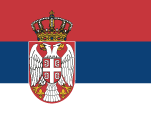
In the European Union, vocation-oriented studies constitute a foundation of the society’s educational and professional system. There are many higher education institutions with exceptionally high ranking that directly prepare their students for professional careers. Which is why it is generally recommended to pursue a vocational education if a person knows exactly what interests them and wants to enter the workforce as soon as possible.
It is true that more generalized, academic studies used to be regarded as a better choice; however, time has challenged this standpoint, and a comprehensive debate on the pros and cons of these options is still underway. It has certainly turned out that some diplomas are not in great demand on the job market although they have been acquired at top universities, whereas diplomas and skills acquired through a vocation-oriented higher education institution (providing, for instance, education in IT or finance) have paid off more than well and provided a gateway to better careers.
The majority of the demand for professions in the ICT sector has to do with different aspects of software engineering. Current open positions are often reserved for project development managers, data analysts, IT consultants, IT auditors, business analysts.
The applied master’s program at ITS has been designed for students interested in working in information and communication sciences, either theoretically or practically, at an advanced level. Introducing the students into newly created areas of informatics, this program emphasizes the foundations and the major concepts of the field. The objective is to develop concepts, rather than routine programming skills. Students are prepared for professional work in the design and implementation of software systems, database systems, operating systems, artificial intelligence, expert systems, graphics, simulations and algorithms that will help solve the problems faced by both scientists and businesspersons.
The curriculum has been designed to let the students develop the skills required for obtaining leadership positions in business, industry and related areas that rely on ICT sciences. The studies take two years, bringing 120 ECTS points. The required level for enrolling at the applied master’s IT program at ITS implies completed undergraduate studies with 180 ECTS.
Through the completion of these studies, the students become competent programmers or IT managers, with general and subject-specific competences, and the title Master of Applied Studies in Information Technology and Systems. Their level of qualification is 7.1.
Author: dr Bojan Ristić




